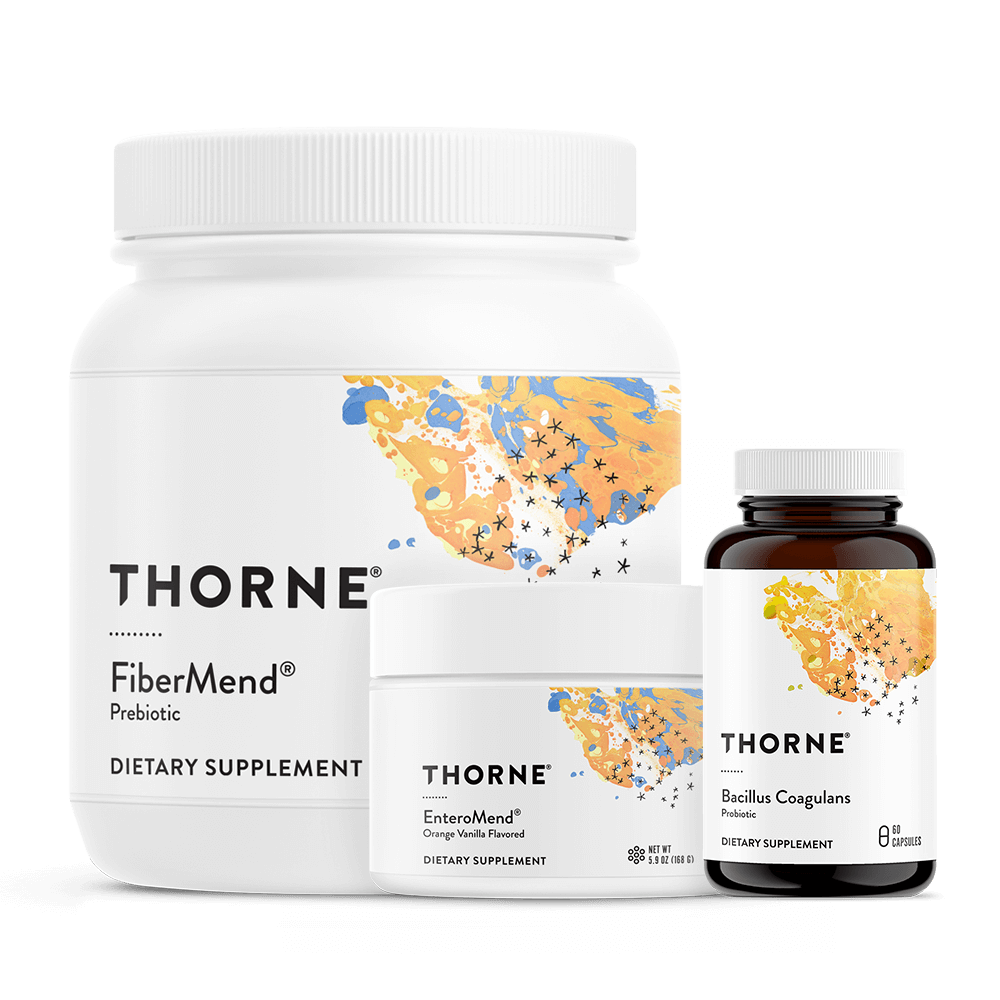Discovering the Causes and Effects of Digestive Tract Issues and the Role of Gut Health Supplement
Digestive tract health is a vital facet of general wellness. Poor nutritional selections, tension, and inequalities in gut microorganisms can lead to different gastrointestinal problems. Signs such as bloating, looseness of the bowels, and stomach discomfort often suggest much deeper health issues. Comprehending these reasons and the prospective duty of gut health and wellness supplements may offer important understandings. What approaches can be employed to restore equilibrium and boost intestine feature? The solutions may lie in the following actions.
Comprehending the Digestive Tract Microbiome
The digestive tract microbiome, a complicated ecological community of trillions of microorganisms residing in the digestion system, plays an essential duty in general health. This varied area includes bacteria, infections, fungis, and other germs that connect symbiotically with the human host. They aid in the food digestion of food, the synthesis of vitamins, and the law of metabolism. Additionally, the intestine microbiome greatly influences the body immune system, assisting to protect against pathogens and preserve a balanced inflammatory response. Research suggests that a healthy and balanced microbiome is vital for mental health, with gut-brain communications impacting state of mind and actions. Factors such as diet, way of life, and ecological exposures can shape the structure of the microbiome, stressing the significance of preserving a well balanced diet plan rich in fiber and probiotics. Comprehending this elaborate ecosystem provides insights into just how intestine health and wellness can affect general physical and mental health, highlighting its importance in health monitoring.
Typical Reasons of Digestive System Concerns
Many aspects can add to gastrointestinal issues, specific common causes regularly interrupt intestine health and wellness. Poor nutritional selections, such as high sugar and refined food consumption, can result in discrepancies in digestive tract microorganisms. In addition, inadequate fiber consumption can impede food digestion and promote bowel irregularity. Tension is another substantial variable, as it can modify digestive tract function and intensify status quo. Moreover, absence of physical task may reduce the gastrointestinal system, creating pain and bloating.
Infections, including bacterial, viral, or parasitical agents, can additionally activate intestinal disruptions. Food intolerances and allergic reactions, especially to gluten and lactose, frequently lead to gastrointestinal discomfort. The misuse of prescription antibiotics can disrupt the natural microbiome, leading to more difficulties. Recognizing these typical reasons is important for individuals looking for to improve their gut wellness and total health.
Identifying Symptoms of Digestive Tract Problems
Recognizing signs and symptoms of digestive tract troubles can be essential for prompt treatment and boosted wellness. People experiencing gastrointestinal pain ought to know several common indications that recommend underlying problems. Signs and symptoms might consist of bloating, gas, diarrhea, irregularity, and stomach pain. These indications can vary in intensity and frequency, frequently showing the intensity of the gut problem. In addition, some individuals might observe unintended weight management, exhaustion, or adjustments in hunger, which can signify a much more major condition. Skin concerns, such as rashes or acne, may additionally occur, connecting digestive tract wellness to overall well-being. Significantly, relentless symptoms need to not be disregarded, as early recognition can help with efficient therapy and stop additional problems. A thorough understanding of one's physical signals is vital, allowing individuals to look for medical suggestions when essential and potentially bring about better wellness outcomes with proper interventions.
The Effect of Diet Regimen on Intestine Wellness
Diet regimen plays a crucial duty in figuring out gut health, affecting both microbial balance and digestive system performance. Nutrient-rich foods can advertise a healthy and balanced intestine setting, while processed foods may lead to inequalities and digestive system problems. Recognizing these nutritional impacts is essential for keeping total digestive tract health and wellness.
Nutrient-Rich Foods
While many variables influence intestine health, the duty of nutrient-rich foods can not be overemphasized. A diet regimen plentiful in entire foods, such as fruits, vegetables, entire grains, lean healthy proteins, and healthy fats, adds greatly to keeping a balanced gut microbiome. These foods offer important vitamins, minerals, and anti-oxidants that support digestive health and wellness and lower inflammation. Fiber-rich alternatives, especially, advertise routine defecation and nurture helpful intestine bacteria, enhancing overall gut function. Probiotic-rich foods like yogurt and fermented veggies even more sustain digestive tract plants, helping food digestion. Integrating a selection of nutrient-dense foods not only promotes a healthy gut environment but also strengthens the immune system, adding to general wellness. Prioritizing these foods can result in boosted gut health and wellness and prevent potential concerns.
Processed Food Impacts
The usage of processed foods can significantly undermine intestine health, neutralizing the benefits of nutrient-rich alternatives. These foods are usually high in chemicals, additives, and sugars, which can disrupt the balance of intestine microbiota. A diet regimen abundant in processed things has a tendency to lack essential nutrients, causing deficiencies that jeopardize digestive feature. Moreover, too much sugar and unhealthy fats can promote inflammation and contribute to conditions like short-tempered bowel disorder (IBS) and dripping intestine disorder (supplement for bloating). This inequality might result in symptoms such as gas, bloating, and discomfort. Furthermore, the reduced fiber material in refined foods decreases digestive system health by limiting the development of valuable microorganisms. Ultimately, a shift in the direction of site whole, unprocessed foods is important for keeping optimal digestive tract function and total health
How Anxiety Affects Digestion
Stress considerably affects digestion by setting off a waterfall of physical responses that can interrupt normal gastrointestinal feature. When a specific experiences tension, the body gets in a fight-or-flight mode, launching hormonal agents such as cortisol and adrenaline. These hormonal agents can decrease food digestion by minimizing blood flow to the digestive system organs, causing symptoms such as irregular bowel movements, looseness of the bowels, or bloating.
Additionally, stress can modify the gut microbiome, adversely influencing the equilibrium of advantageous germs. This imbalance can worsen existing intestine problems or develop new ones. In addition, stress and anxiety frequently brings about unhealthy consuming habits, such as overindulging or consuming processed foods, which can better jeopardize digestion health.
Emotional elements, such as anxiousness and clinical depression, can also add to intestinal discomfort, creating a comments loophole that bolsters intestine concerns. For that reason, comprehending the complex relationship in between stress and anxiety and food digestion is necessary for maintaining general intestine health and wellness.
The Duty of Gut Wellness Supplements
Gut health supplements play a significant role in enhancing digestive system function and overall health. Secret ingredients, such as prebiotics and probiotics, are vital for keeping a balanced intestine microbiome. Understanding the advantages and parts of these supplements can help individuals in making notified choices for their digestive health.
Benefits of Digestive Tract Supplements
A prospering digestive system is crucial for general wellness, and intestine health and wellness supplements can play a considerable duty in accomplishing this balance. These supplements often have probiotics, prebiotics, and numerous nutrients that sustain gastrointestinal feature and promote a healthy and balanced gut microbiome. By improving the development of useful bacteria, they can enhance food digestion, decrease bloating, and ease discomfort related to stomach problems. Furthermore, gut supplements might enhance the intestine obstacle, potentially minimizing the threat of food level of sensitivities and inflammatory conditions. Normal use can additionally add to improved nutrient absorption, energy levels, and even psychological well-being, as intestine health and wellness is very closely connected to state of mind browse this site regulation. Inevitably, incorporating intestine health supplements can be a calculated technique to preserving digestion harmony and overall wellness.

Secret Ingredients to Consider
When selecting gut wellness supplements, comprehending the vital active ingredients is vital for maximizing their advantages. Probiotics, specifically Lactobacillus and Bifidobacterium stress, are necessary as they aid recover a well balanced intestine microbiome. Prebiotics, such as inulin and fructooligosaccharides, work as food for these beneficial microorganisms, advertising their development. Digestion enzymes, consisting of amylase and protease, help in damaging down food, enhancing vitamins and mineral absorption. Furthermore, fiber resources like psyllium husk assistance routine defecation and total intestine wellness. Various other useful ingredients might consist of L-glutamine, which aids out of commission intestine cellular lining, and zinc, understood for its immune-supporting properties. Choosing supplements with these vital parts can visit our website substantially improve digestive tract wellness and general health.
Tips for Keeping a Healthy And Balanced Intestine
Maintaining a healthy digestive tract is crucial for overall wellness, as it plays a vital role in immunity, nutrient, and digestion absorption. To support gut health, people need to prioritize a balanced diet rich in fiber from fruits, vegetables, and entire grains. These foods promote valuable microorganisms in the intestine. In addition, including fermented foods such as yogurt, kefir, and sauerkraut can boost digestive tract vegetation diversity. Remaining moisturized is also crucial, as sufficient water consumption aids digestion and nutrient transport.
Routine exercise adds to gut health and wellness by advertising efficient digestion and minimizing tension, which can negatively impact gut feature. Managing anxiety via mindfulness techniques like reflection or yoga can likewise support digestive tract health. Lastly, preventing excessive use anti-biotics and limiting refined foods, sugars, and harmful fats can foster a balanced gut atmosphere. By adopting these techniques, people can substantially improve their gut health and overall well-being.
Regularly Asked Questions

Can Intestine Wellness Effect Mental Wellness and Mood Security?
Research study indicates a substantial web link between intestine wellness and mental well-being. The intestine microbiome can influence state of mind stability and mental wellness, suggesting that keeping a healthy and balanced gut might add positively to psychological resilience and cognitive feature.
Exist Certain Foods to Avoid for Better Intestine Wellness?
Particular foods can adversely impact intestine wellness, including processed sugars, sweetening agents, and high-fat milk items. Lowering these items may enhance digestion function and promote a healthier gut microbiome, resulting in generally much better health.
How much time Does It Take for Digestive Tract Wellness Supplements to Program Results?
The period for intestine health and wellness supplements to demonstrate results varies among individuals. Commonly, obvious changes might take place within a couple of weeks, but some individuals may call for numerous months for ideal outcomes, depending upon their distinct health and wellness problems.
Can Kid Experience Intestine Concerns Comparable to Grownups?

Youngsters can experience gut problems comparable to adults, including pain, bloating, and uneven digestive tract movements (supplement for bloating). Elements such as diet regimen, stress, and infections may add to these troubles, making understanding and management important for their wellness
What Are the Long-Term Impacts of Neglected Intestine Problems?

Fiber-rich options, especially, promote routine digestive tract motions and nourish advantageous digestive tract bacteria, improving total digestive tract feature. A growing gastrointestinal system is critical for general health and wellness, and digestive tract health supplements can play a considerable function in accomplishing this balance. In addition, gut supplements may enhance the digestive tract barrier, potentially lessening the danger of food level of sensitivities and inflammatory conditions (supplement for bloating). Routine physical activity adds to digestive tract health by promoting efficient digestion and minimizing stress, which can detrimentally influence digestive tract feature. Certain foods can negatively influence intestine health and wellness, consisting of refined sugars, artificial sugar, and high-fat dairy products